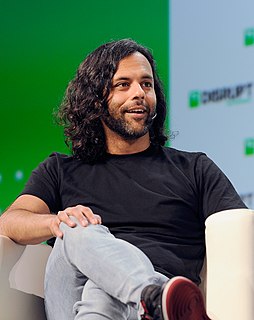A Quote by Andrew Ng
Even companies like Baidu and Google, which have amazing AI teams, cannot do all the work needed to get us to an AI-powered society. I thought the best way to get us there would be creating courses to welcome more people to deep learning.
Related Quotes
One of the things that Baidu did well early on was to create an internal platform for deep learning. What that did was enable engineers all across the company, including people who were not AI researchers, to leverage deep learning in all sorts of creative ways - applications that an AI researcher like me never would have thought of.
There are two companies that the AI Fund has invested in - Woebot and Landing AI - and the AI Fund has a number of internal teams working on new projects. We usually bring in people as employees, work with them to turn ideas into startups, then have the entrepreneurs go into the startup as founders.
As the founding lead of the Google Brain team, former director of the Stanford Artificial Intelligence Laboratory, and now overall lead of Baidu's AI team of some 1,200 people, I've been privileged to nurture many of the world's leading AI groups and have built many AI products that are used by hundreds of millions of people.
Deep-learning will transform every single industry. Healthcare and transportation will be transformed by deep-learning. I want to live in an AI-powered society. When anyone goes to see a doctor, I want AI to help that doctor provide higher quality and lower cost medical service. I want every five-year-old to have a personalised tutor.

























